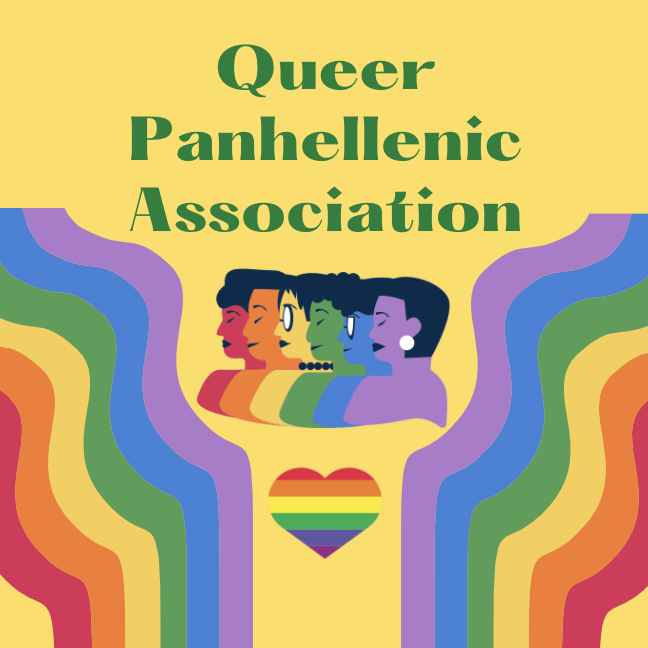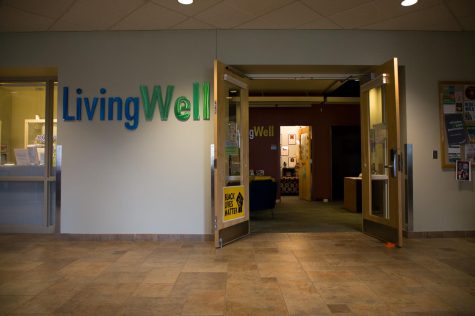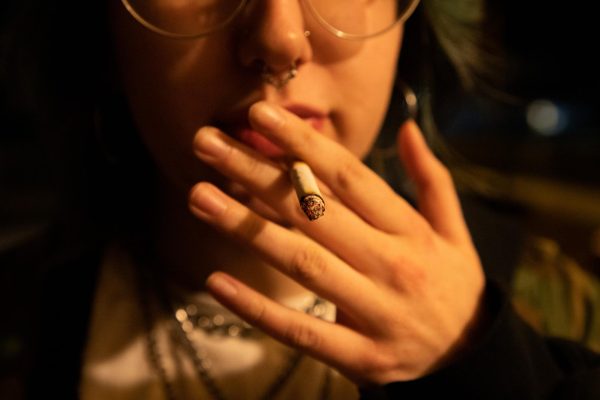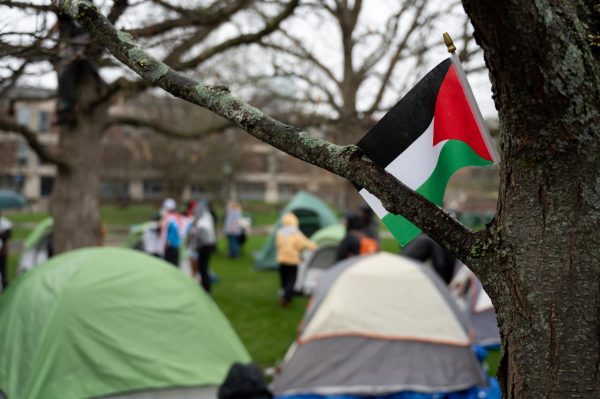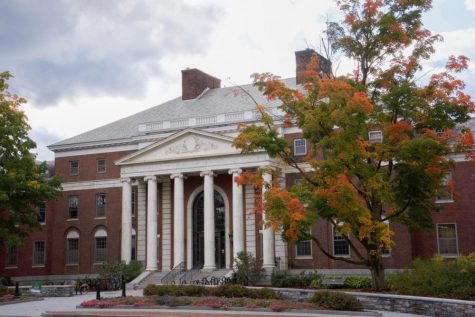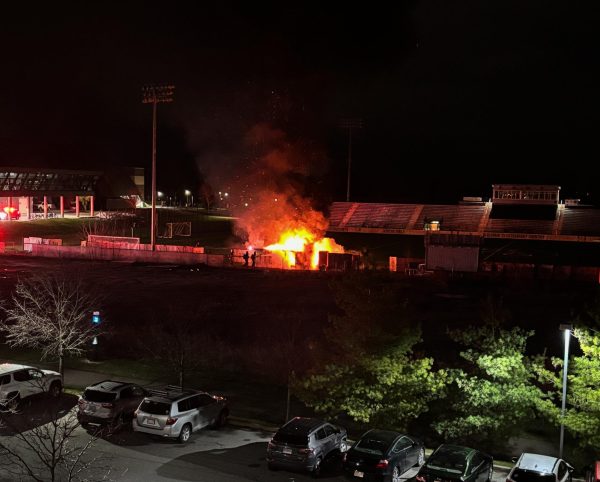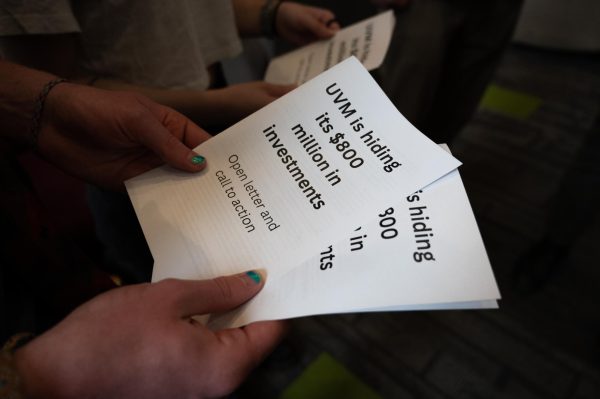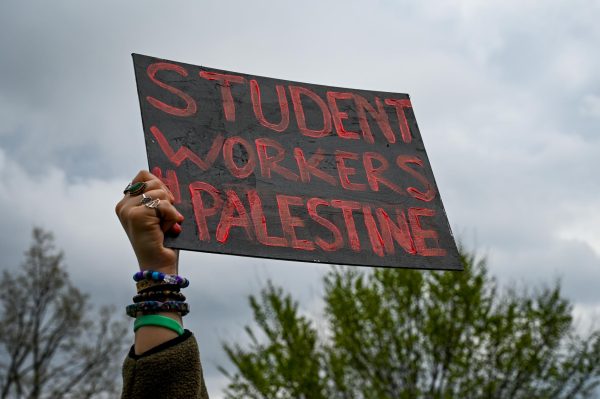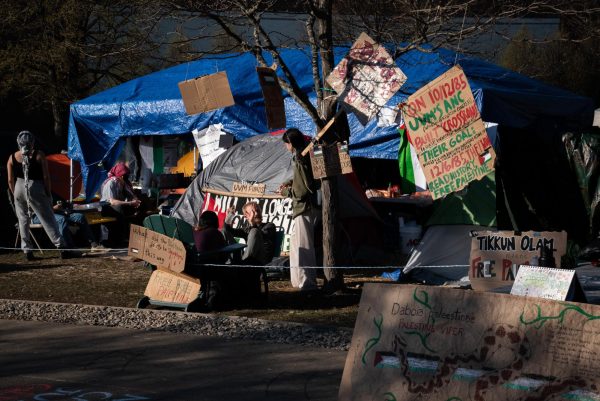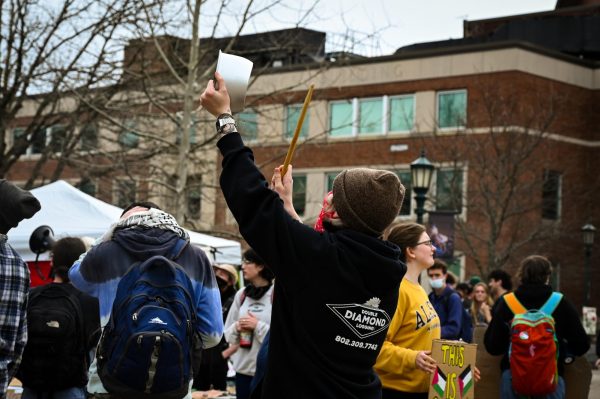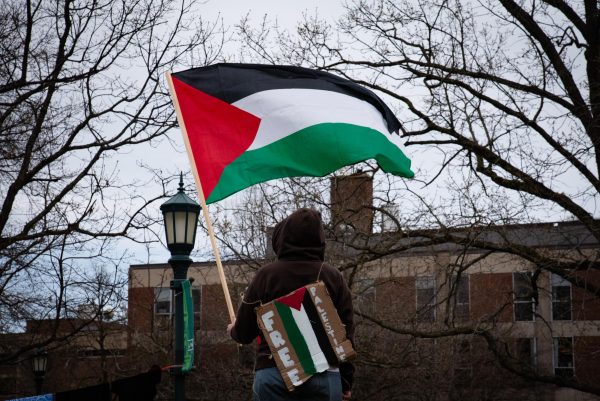FSL members form queer affinity space
A new affinity group for queer identifying people in sororities, the Queer Panhellenic Association, aims to create community for the LGBTQ+ students in UVM Sorority Life.
QPA hopes to become a place where LGBTQ+ panhellenic members can uplift one another and celebrate living a queer life in a heteronormative society, according to a Feb. 26 QPA Instagram post.
“The generic stereotype of a sorority person is a sorority woman, a cisgender straight girl, and that’s not necessarily the case for everybody in a sorority, especially here at UVM,” said junior Cassandra Uy, Panhellenic Vice President of Diversity, Equity and Inclusion Chair, member of QPA, and member of Pi Beta Phi, who identifies as nonbinary and transgender.
The affinity space is currently only accepting female identifying and non-binary members in sororities. The group is assessing whether members feel comfortable with accepting male-identifying students into the group, said junior Eliza Ligon, QPA director of outreach and member of Kappa Alpha Theta, who identifies as queer and pansexual.
Sorority life can be difficult at times for a queer person, Ligon said.
An affinity space is important to allow for LGBTQ+ individuals to express their hardships Ligon said.
“The reason why the affinity space can exist […] is because there are really beautiful moments of being a queer person in greek life,” Ligon said.
The idea came from a nonbinary member of Alpha Delta Pi who hoped to create a community where LGBTQ+ members of sorority life could come get to know each other and reaffirm their presence in the community, Ligon said.
“Greek life is a system that was built on a history of oppression,” Ligon said. “We weren’t the people who the space was built for.”
This is why members believe the affinity space is so important. It helps to reimagine what FSL could be with further inclusion, Ligon said.
“It’s not just the silencing of queer voices, which it’s not even necessarily intentional,” Ligon said. “It’s just a forgetfulness sometimes. It reminds us that we are here and to remind other people that we’re here too.”
The UVM College Panhellenic Association website stated the University’s Panhellenic recruitment is accessible for all who identify as women.
The website does not use any language inclusive of nonbinary or gender-nonconforming individuals.
There has been a lot of progress regarding inclusion made by the Jewish Council of Sorority Women and The Sisters of Color affinity space, Cassandra Uy said.
The Jewish Council of Sorority Women and the Sisters of Color organization have actively been pushing for progress, Uy said.
However, there has never been a designated FSL affinity space for queer people until now.
Up until fall 2021, Uy was the only member of their sorority that did not use she/her pronouns, they said.
Uy found that gender inclusive language was not being used in group settings, they said.
After speaking with other members in their community, Uy said they found that the use of gendered language was an issue within the University’s Panhellenic community.
“My main challenge going into recruitment is implementing education on gender inclusive laguage and taking a step back from the heteronormative structure within [FSL],” Uy said.
This work requires changing the language of recruitment guidelines and bylaws, all of which currently state someone must be a woman at UVM to join a sorority, Uy said.
Uy hopes to expand sorority spaces that traditionally only accommodate women to include all non-male identifying people, they said.
Uy also hopes to see queer voices amplified within UVM sororities and for a community to form that allows for people to voice issues that the cisgender and heterosexual members of FSL would not understand, they said.
Uy wants to make the University’s FSL community a more diverse place where all voices are equally valued. They are excited to see the work QPA will do to further this endeavor, they said.


